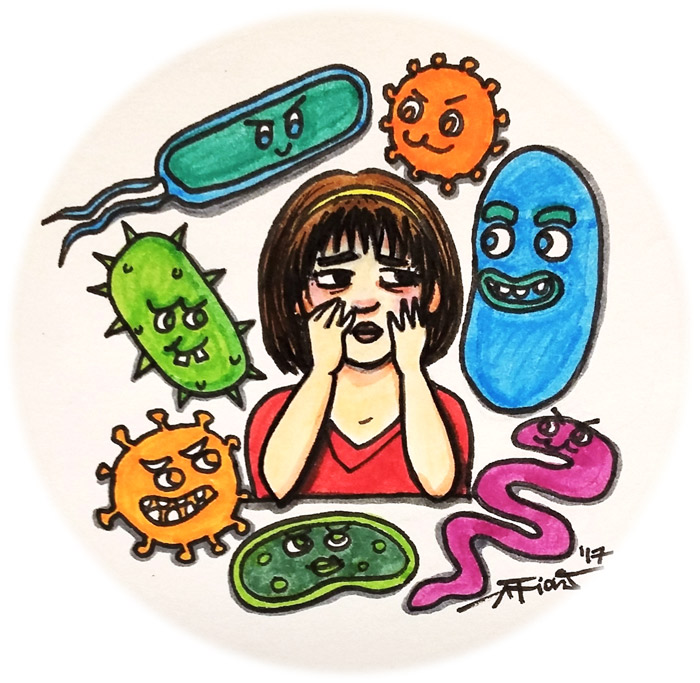Catching a cold in the morning or at night can make a big difference. A new study from the McGill University and the Douglas Department of Health Institute suggests that the severity of an infection might vary significantly depending on the time of day we contract a pathogen—an agent causing disease or illness to its host.
For the very first time, McGill researchers showed that the body’s circadian clock dictates the magnitude of the parasitic infection, Leishmaniasis.
According to the National Institute of General Medical Sciences, circadian clock refers to “[…] physical, mental and behavioral changes that follow a roughly 24-hour cycle, responding primarily to light and darkness in an organism's environment.”
The tropical parasite, Leishmania, is transmitted by the female sandfly and kills 20,000 to 30,000 people per year, leaving painful scars on those who survive. When untreated, Leishmania is lethal.
“Leishmania tricks the body by manipulating what the macrophage, white blood cell, does using the host’s immune system against it,” said Associate Professor Nicolas Cermakian from McGill’s Department of Psychiatry and researcher at the Douglas Institute. “By understanding how this process is linked to the circadian rhythm, we might be able to play tricks on it in return.”
Cermakian’s team found that when the disease was transmitted at night, the infection affected the subjects more than when it was contracted during the day.
“There was more inflammatory cell recruitment, [or] more immune cells coming to the site, in the animals’ bodies at night, which is what the parasite wanted,” said Professor Martin Olivier in the McGill Department of Medicine, Microbiology, and Immunology and the Research Institute of the McGill University Health Center. “It could [therefore] invade more cells at that time.”
Thus, the parasite took advantage of the body’s circadian rhythm in order to acquire the maximum number of host cells.
“Circadian rhythms affect pretty much everything in physiology,” Cermakian said. “[Many] parts of our body [vary] between […] day and night [as] generated by our intrinsic clocks.”
The team successfully established that these internal clocks regulate the body’s immune response against pathogens. This observation can lead to better prevention strategies against many illnesses—including malaria, zika, and lyme disease—and other insect borne diseases.
In light of this news, there could also be a significant difference between the effectiveness of vaccinations done in the evening or during the day. Continued research in this area could hinder widespread diseases from doing more damage.
“We now want to know how we can better treat people with drugs and vaccinations, and at which moment we can vaccinate people in order to give better protection,” Olivier said. “Indeed, the variation in immune response due to the circadian rhythm could be true for many infections.”
Furthermore, Cermakian’s research on the health of shift workers shows that people with disturbed circadian rhythms have a higher likelihood of contracting many diseases, including cancer, cardiovascular, and metabolic problems. Prolonged exposure to artificial light from electronics, disorganized eating, and irregular sleeping schedules all qualify as disturbances.
Although keeping track of intrinsic clocks won’t protect everyone from contracting diseases such as Leishmania, respecting the natural body cycle can attribute to a healthy lifestyle overall.








